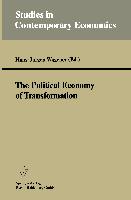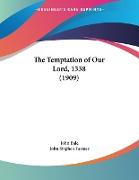The Political Economy of Transformation
BücherAngebote / Angebote:
Transformation has become the major puzzle of economics for the last decade of this century, and not of economics alone: it has so many ideological, cul tural, juridical, social and political ramifications that it will take some time to construct a framework within which the process can be analyzed proper ly. Economists usually discern three major aspects of transformation, macro economic stabilization, institutional reform and restructuring. Since transfor mation was not only caused by political will, after the demise of more or less totalitarian regimes, but also by a manifest economic crisis, the success of the operation will be judged by its ability to bring the transforming economies back on a road of self-sustained economic growth. Macro-economic stabilization is considered a precondition of growth as well as of institutional reform and restructuring. It is theoretically understood best, and can be implemented rather directly. This is much less true of institutional reform and restructuring. Where they are functioning well, competitive market economies have emerged over a long period of time. Nowhere do they exhibit theoretically pure forms, and economic theory does not understand well the process oftheir constitution. However, it seems evident that institutional reform is also mainly a task of policy. As for restructuring, there is much less consensus that this is the case. The schools of thought differ in their opinion about the role of the state in guiding production and investment decisions.
Folgt in ca. 5 Arbeitstagen




